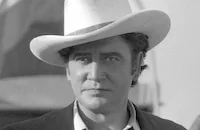Shooting Straight

Brief Synopsis
Cast & Crew
George Archainbaud
Richard Dix
Mary Lawlor
James Neill
Mathew Betz
George Cooper
Film Details
Technical Specs

Synopsis
City gambler Larry Sheldon, upon hearing that a pal has been taken for a ride, goes to the hideout of Spot Willis and, to all appearances, wreaks revenge. Sheldon leaves the city with his henchman, Chick, occupying a Pullman section with Mr. Walters, an evangelist; before Sheldon can return Walters' wallet (which Chick has lifted), the train is wrecked. Later, Larry awakes to find himself the guest of the Reverend Powell, who has mistaken him for Walters; he keeps his identity secret, and attracted to Doris, the minister's daughter, he begins to take an interest in the community church and social life. When Doris' brother becomes involved with Martin, a local gambler, Larry covers Martin in a crap game, but Martin, recognizing him, turns him over to the police. After a battle with the police, Larry is subdued, but Martin confesses and reveals that another man is responsible for the murder of Willis. Larry finds happiness with Doris and decides to go straight.

Director
George Archainbaud
Cast

Richard Dix
Mary Lawlor
James Neill
Mathew Betz
George Cooper
William Janney
Robert E. O'connor
Clarence Wurtz
Eddie Sturgis
Richard Curtis
Crew

Film Details
Technical Specs

Articles
Shooting Straight -
By Richard Harland Smith














